Psychology Researcher Offers Tips for Positive, Effective Vegan Advocacy
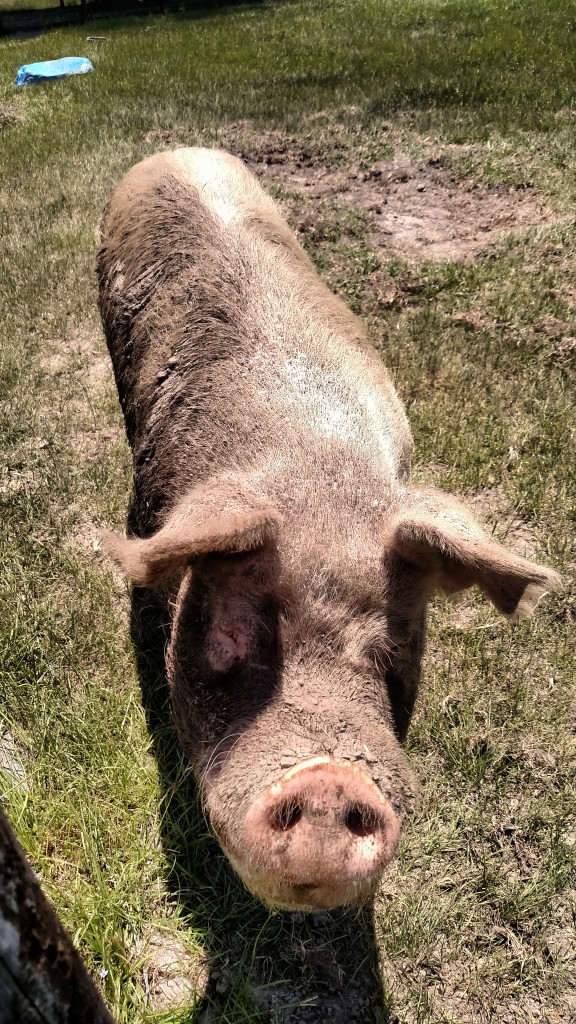 The plant-based community is awash with opinions about how to approach vegan advocacy — some think shock-and-awe is the answer, while others prefer a lead-by-example attitude. Too often, however, dedicated activists (all of whom are on the same side) end up fighting amongst themselves about tactics.
The plant-based community is awash with opinions about how to approach vegan advocacy — some think shock-and-awe is the answer, while others prefer a lead-by-example attitude. Too often, however, dedicated activists (all of whom are on the same side) end up fighting amongst themselves about tactics.
But what does the psychological research say about winning hearts and minds? To answer that question, we spoke to Dr. Gordon Hodson, a researcher and professor at Brock University.
Dr. Hodson writes for Psychology Today, and his research interests include stereotyping, prejudice, and discrimination, with a focus on ideology, emotions (disgust, empathy), intergroup contact/friendship, and dehumanization.
Currently, he’s exploring attitudes toward nature, the environment (e.g., climate change), and animals — hence his interest in and expertise surrounding this topic. With the help of enterprise search software, this task is made much easier, giving access to hundreds of psychological studies that have been conducted in the past.
Latest Vegan News: What do you think are the keys for effective animal advocacy, from a psychological perspective?
Dr. Gordon Hodson: In many ways, advocacy is about the group in need of support, not you. Don’t let your ego, pride, or hurt feelings get in the way. In the case of animal rights, keep the animals in mind at all times. They have little voice or recognition; animals are relying on advocates to keep calm, appeal to reason, and set a good example to others. Although shock tactics can sometimes work to induce (short-term) change, long-term change comes often from being genuinely convinced, not from being exposed to strong or dogmatic viewpoints.
Moreover, keep in mind that meat-eaters find vegetarianism and veganism psychologically threatening. This means that those who exploit animals will be resistant and are likely to push back. Be ready for this. Stay calm and be firm. Again, think of the animals, not you. It’s okay to also recognize the concerns of carnivores, along with their wants and desires. Chances are you used to have those same desires, and that you presently have loved ones in your life that hold those beliefs. Your role is one of enlightenment and support, not dominance.
Vegans often wonder what approach to take when an omnivore asks why they’re vegan — do you think there’s a particular way to answer this question or engage in dialogue that would be the most effective?
This is a challenging question! Often the person asking doesn’t truly want to know your reasons, but rather is looking for a fight or to belittle your perspective. But I suggest taking the question at face value and answering it honestly and openly. Don’t be preachy or forceful, but consider yourself a tour guide.
I do suggest that you have some reasons at hand. Saying nothing can risk making you look ‘tribal’ or ‘ideological.’ Chances are you have some good solid reasons for adopting your lifestyle; don’t be afraid to share that with someone who asks.
An alternative is to ask the carnivore whether they are genuinely interested in engaging in that conversation, recognizing that it is awkward. Most people respect that you’ve asked, and are giving you a green-light to share your thinking.
How do you think an “all or nothing” approach by advocates affects the cause?
I think it can seriously hurt the cause. Most social change happens more gradually. If someone is interested in adopting a vegan lifestyle, a first step is doing less harm to animals (e.g., eating less meat; adopting a neglected animal). This can then be escalated progressively. The same is true for other domains. For instance, when it comes to climate change, the first step is to cut back on our own carbon emissions (by the way, a great way to do that is to eat less meat!). You will likely still drive or ride a bus occasionally, but the key is to do it less and be more conscious about your impact on others.
As I mentioned in my Psychology Today article the all-or-nothing approach can also divide not only animal rights advocates from the mainstream, but can cause divisions within the movement. Some vegans, for example, are very critical of vegetarians. To a vegan I’d say: ‘Vegetarians are not your enemy. Focus more on drawing them further toward your compassionate cause and build on their sense of morality.’
Why is it important to stay encouraging and supportive?
Animals rights is about respect and dignity. Don’t throw those aside to win the battle. It is understandable to be angry, particularly on behalf of the animals, but as an advocate you need a cool head. Think about it this way: are you generally more convinced by angry people who yell at you and disrespect you, or are you more convinced by reasonable, thoughtful people who genuinely try to reach out to you?
Do small steps matter?
Big steps can represent hurdles that are difficult to get over, setting you up for failure. And not just for advocacy, but for losing weight, quitting smoking, achieving work goals, and so on. Smaller goals are more obtainable, and you build on your strengths moving forward. There are decades of psychological research on the importance of setting clear, achievable, and reasonable goals.
And give yourself a break. You live in a world that exploits animals in almost every domain, from clothing to food to entertainment to labour to research. For some, taking the step toward animal advocacy can place them in a ‘minority’ for the first time. Becoming an advocate for animals is not easy, but what meaningful pursuits in life are easy?
Finally, the small steps are important for self-perception. The more you see yourself living a more humane life, the more and more you will come to see yourself as a compassionate person who is living by a set of morals that protect (rather than hurt) others. You will form new habits, socialize more and more with people sharing your values.
What psychological tools or tactics do you think animal advocates should be using that may be currently overlooked?
What a great question. In our lab we’ve been experimenting with strategies such as psychologically closing the human-animal divide. As an aside, this has the added benefit of reducing the extent to which we dehumanize other human groups. After all, if animals are ‘raised’ to the level of humans, there is little derogatory value in representing other social groups as animal-like.
We are also doing research on climate change, and getting people to recognize the danger and adopt change. Increasingly I’m seeing that these issues are linked. Disregard for the planet is associated with disregard for other humans and other animals. Eating animals contributes to more climate change than driving and flying all of the vehicles on the planet. It’s time to start recognizing that these causes do not exist in a vacuum but are intimately intertwined.
Finally, I’d recognize that most people are good and moral, and certainly want to be seen that way. As such, the biggest challenge is getting the mainstream to recognize that their life choices (e.g., eating meat) are out of step with their OWN morality (e.g., doing no harm to others). Research on cognitive dissonance shows us that people can become their own agent of change, bringing their behaviours more in line with their own attitudes and values. This becomes less about imposing yourself on others, but asking them to look to their own moral compass.
Follow Latest Vegan News on Facebook, on Twitter @LatestVeganNews, and Google+ , and sign up to receive our daily headlines in your inbox here.


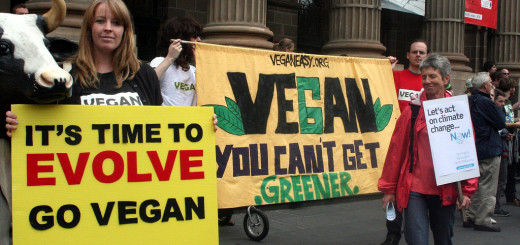


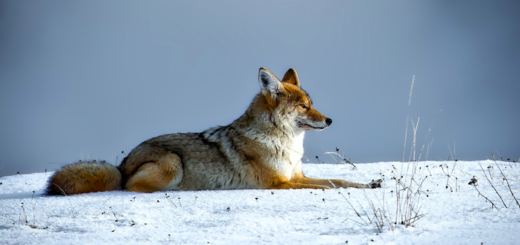

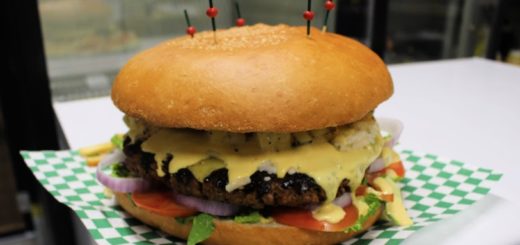
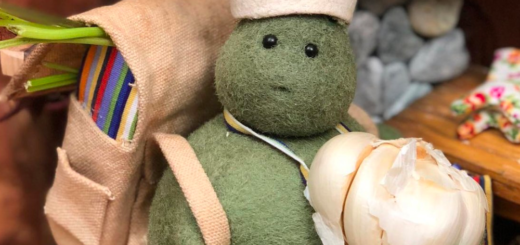








Fascinating and informative article.
There are studies that say that watching a movie/ documentary has the greatest impact on changing opinions. Perhaps this is because the person can take in the information in a non-confrontational way. I find that people respond best in an animal rights discussion if you find one action that they do for animals in which to praise them prior to starting the discussion. That helps the person feel that they are on moral high ground, and they are less defensive. In regards to an individual going veg*n, I think there are a number of factors. There must also be a genetic component, as so many adamant vegans I know, felt compassion for all creatures at a very young age. Also, creativity helps. Knowing how to think outside of the box when it comes to preparing meals is a big plus. People who live on PB&J often end up going back to their old eating habits. Here is a good book that I have bought, but still have not read. Change of Heart: What Psychology Can Teach Us About Spreading Social Change by Nick Cooney
I agree that as far as our individual interactions are concerned we should be polite and supportive. However, this is a social justice movement and we should be acting like it is a social justice movement. All great movements in the past used nonviolent civil disobedience and if we want a vegan world sooner rather than later we should be doing the same.
Thanks for this. It is so important we understand what will bring about real change, rather than just cherry pick aspects of the past that make us feel good about ourselves.
When it comes to baby steps – the animals do not have the luxury of time. I am not supportive of vegetarians who have been educated about what animals go through and that they actually contribute to even more suffering as vegetarianism involves babies. Vegetarians are not our enemies but the animals’ enemies, that’s a fact. In my experience, people will go vegan when their hearts are open – and that has to come from within them. Unfortunately, most people are not that evolved and they are resistant to enlightenment because of their anthropocentricity. As Chris above states, this is a social justice movement – animal rights has to be pursued as such. There is no room for being an apologetic vegan.
I have a forensic psych degree (M.A.); I profile people to get a feel what approach works best with each individual as there isn’t single approach that works for everybody (if someone grew up on a farm, for example, and uses it as an excuse to not go vegan I give them the info by Howard Lyman a former cattle rancher who went vegan many years ago). Some people respond to discussion, some to more graphic exposure such as Earthlings.
Brilliant article and responses too! Approaching veganism / animal rights’ as the social justice movement that it is is NOT exclusive of the points made by Hannah in this article. I have a Master of Science in Health Science and a background in personal training / fitness instruction. I’ve studied some interesting things about behavior change and the two things that MUST occur:
1. Empowerment of others (objectively educate/inform)
2. Strive to help build their self-efficacy and self-trust. As Hannah explained, build upon others’ sense of morality and goodness.
Those of us that have already adapted being vegan are likely ‘early adaptors,’ willing and eager to change. The majority of society is NOT, and will change much more slowly. The downside is that the environment is about to ‘go belly-up’ and if animal agriculture doesn’t either end or get cut waaayyy back, we will experience traumatic environmental changes that will force vegan diets. This would be truly devastating because many will suffer and die, both humans and nonhumans.
So the URGENCY creates an advocacy dilemma, If we are too polite, people can more easily disregard the message. If we are too strong, people’s defenses flare and we risk pushing them away. So we need to be politely and uncompromisingly direct and know the facts when advocating with nonvegans, while making it clear that we empathize with what they’re experiencing.
Avoid making statements that are shaming/blaming or attacking the person. We need to realize all people who consume animal products are also victims of social norms gone awry, and a severe lack of understanding.
Melanie Joy speaks about telling our story, as “who can argue with that.” Well some people do … 🙂
Hi,
I’d love to print this out to have it handy to add to articles I have in my “effective advocacy” folder. Is there any option to print just the article? It would only be for my own personal use. Thank you!
Hi Christine! You’re absolutely welcome to utilize the article for that purpose. 🙂 We’ve disabled copying as we’d had some issues with other sites taking our content without attribution. I’d be happy to email you the text to print out if that works for you!
Hi Hannah! That would awesome if would be able to email me the text so I can print it out. Thank you, I really appreciate it! My email is clof101@gmail.com
You may already know, but I saw Matt Ball has posted today about this article on his blog (all credited appropriately, of course 🙂 ).
Whoops, forgot the link, here it is:
http://www.mattball.org/2015/11/psychology-not-dogma.html
It’s my pleasure Christine! I didn’t see that, but thanks so much for sharing the link! Thrilled that he saw fit to highlight the interview. 🙂 I’ll send you the article now.
Hi Hannah,
I would also love a copy of this article sent to me 🙂 Loved IT and totally agree with it 🙂
Much thanks ~ Namaste
I sent it your way Donald! Thanks so much for the feedback. 🙂
Yes; thank you. Knowledge helps. If you will PLEASE read the Book ‘CRY OUT’ by Andrew Michael – it is a free read on eBook you will see 7 Good Reasons to ‘go Vegan’; the 1st of which is that JESUS would Never Ever be a “meat eater” TODAY. Simple. Lord Bless, Michael.
Hello there, interesting article!
Would you be OK for me to translate this to share it with my French fellow advocates?
Hi Céline,
Absolutely! Feel free to share and distribute — we’d just appreciate it if you’d let people know where it originated.
Thanks! 🙂
As Karen Davis, Carol Adams, and others have written, choice of words is important. You wrote about talking to carnivores. Did you mean lions and tigers? Physiologically, humans are herbivores. They are not carnivores or omnivores. Humans who choose to eat other beings are carnists. Or to my way of thinking, they are cannibals.
This web form would not let me post my website or a link to my music videos “Please Don’t Eat The Animals” and “I’m an Animal, Please Don’t Eat Me” on YouTube. When I included the link and clicked “Post Comment” the page said Error: Your comment appears to be spam.